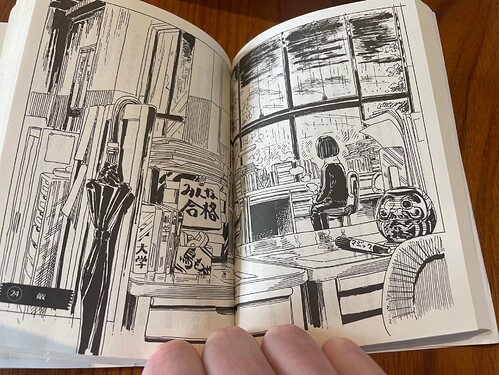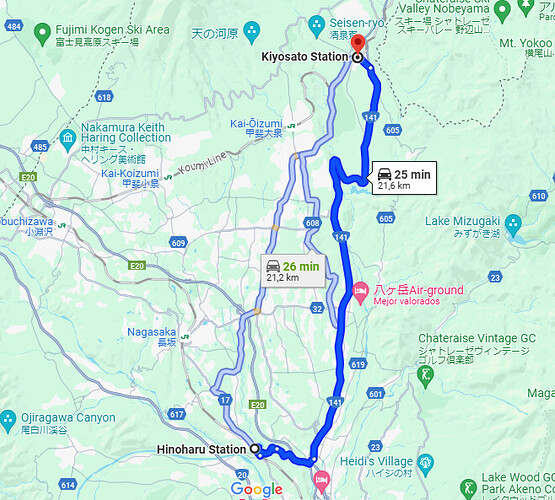Just wanted to mention that I found it in jmdict with a different ふね: 渡りに船
End of chapter 21, p 128:
幾度緊張を和らげても…
What could 幾度 (several times) refer to on this page? Did the author mean “to some degree”, seeing as 度 can mean “degree” as well?
Hi!
I would say that 幾度 is here referred to ても, meaning “no matter how many times [Koguma] relieves the tension…”. It would be close to this grammar point.
Mmm grammatically yes, but I mean more from the point of view of the story.
Relieving tension is something that happens through some other events right. You cannot just say to yourself, “Ok, I’ll relieve my tension 3 times now”. And from the paragraphs before I’m counting just one mention of Koguma relaxing: 老教師の単純な指示と軽い書類袋に拍子抜けした子熊…
Well, I would understand if the sentence was that she attempted to de-stress a few times, but in that case it would be something like 幾度緊張を和らげようとしても
I’m in chapter 26 right now and I think my brain might need a break. The past few chapters have taken so much work for my brain to understand and it’s burning out. I feel like usually by the halfway point of a book (not that I’ve read a lot) my reading speed and comprehension go up massively, but I’m having the opposite effect with this book. It can be a little discouraging. 
Hi!
I’ve just finished chapter 21, 小熊のバイト初日.
I’ve seen this, the godsend part-time job 小熊 “needs” for the bike-related extra expenses. ありがとう.
This, which I now understand as conveying (leaving some nuances aside) that ‘no matter how many times 小熊 tries to relax her tension, from that morning on, if her hand that doesn’t calm down at all shivers, this will be faintly reflected in the shaking front wheel.’
This I understand as ‘子熊, who had lost interest both in the simple indications of the old teacher and the documents bag…’
Thank you all for these! Much appreciated!
今から、甲府へ行きましょう!
More upcoming place names.
I’m not sure what type of place 勝沼 is exactly, so I took a guess. It only appears once as an insignificant detail though, so it’s not necessary for comprehension.
Chapter 26:
清里高原 (きよさとこうげん) Kiyosato Plateau
勝沼 (かつぬま) Katsunuma [Town?]
- デジタル大辞泉
- かつぬま【勝沼】
山梨県甲州市の地名。旧町名。甲府盆地の東部にあり、古くからブドウの産地として知られる。甲州街道の宿場町として発達。
- 大辞林 第三版
- かつぬま【勝沼】🞛
山梨県甲府盆地東縁にある,甲州市の地名。近世,甲州街道の宿場町。甲州ブドウの中心産地。
Chapter 27:
こんなザマで自分はカブに乗り続けることが出来るのか、不安定で不確かな奨学金頼みの暮らしを続けられるのか、自分がこの世の中で生きていけるのか。
I’m not sure if everyone here relates, but I really understand how Koguma feels here. She has a little moment where I think she just feels like a failure, followed by this existential crisis, from not being able to perform a necessary task that she thinks she should be able to do.
How do you guys read this? 
日野春駅近辺
ひのはるえきちかへん
or
ひのはるえききんぺん ?
I have been reading it like the 2nd one all this time. Is this correct?
A bit random, but I did wonder what 鳥も… / 鳥もつ… stood for in the picture at the start of chapter 24 (with the stapler etc. in).
Is it a teacher’s, (with 鳥 in their name), things (もつ), or is it something else ? (I can’t fully make out the second half of it)
Undoubtedly being abandoned by a parent had to be a crushing blow to self-confidence.
But I’m reading her sudden over-the-top thoughts like this in a positive light. As a sign of her finding things to care about and opening up to the world.
Hi!
Just finished chapter 24. She beat the fiendish rain and will maybe enjoy the smell of wet asphalt from now on, this clever little bear, ざま見ろ!
(If she continues equipping at this pace, she will end up having more gear than a soldier, though!)
I have not read that far so am answering out-of-context, but I suspect it stands for the Yamanashi-ken local specialty 鳥もつ煮込み (もつ in this case being “guts”). I’m not sure what the following character on that box is, though. It doesn’t look like 煮 to me, but I’m not surprised, since I would expect something like vacuum-sealed or frozen ingredients in such a box (originally), not an actual cooked meal.
Ah thank you! That will definitely be it!
There’s no real context related to the plot, it’s just a picture of the staff room, and I think all the other bits are more obvious (e.g. みんな合格), but I was stumped by 鳥もつ.
It does feel like the author (and I suppose the illustrator here), has put a lot of effort into making it a realistic portayal of Yamanashi-ken. Which is definitely nice for me, having never been there!
Hi!
I’m in the middle of chapter 26.
For anyone interested, this is the journey 小熊 has decided on (日野春駅, 県道611号, 国道141号, 清里):
Was gladly surprised to find the を中心に grammar point in the wild (白い鉄筋コンクリートの駅舎を中心に欧風の建物が並んでいる)!
Let’s see what this picnic is all about.
良い週末を
I felt there was a slight jump in difficulty for next week’s reading (chapters 30-33). There is an increase in bike-specific language and the tone changes to be more serious.
Here are my notes for the section.
Chapter 30:
合(ごう)is a unit that means 1/10 of a mountain, from base to peak.
須走 (すばしり)Subashiri, a path on Mount Fuji.
丹沢(たんざわ)Tanzawa
Chapter 31:
浅間 (せんげん) Sengen [Shrine]
Chapter 33:
勺(しゃく) is another unit. It appears only once in the chapter and the word seems to represent 1/10 the length of a 合, but I can not fully confirm whether that is true.
There is a reference to the ダカールラリー (Dakar Rally), an off-road racing event.
At several points, the line “山に体を立てるな、体を沿わせろ” appears. At first, I had difficulty understanding the meaning, but after seeing it used in context I would translate it as “Do not try to stand on the mountain, conform your body to it”.
Ohh, I’ve missed that definition completely, thanks! I thought that’s just how they call the stations without any further meaning behind it, but this makes a lot more sense.
Do you know how common the mistakes are? I usually use jpdb but I can switch to the bunpro one if it’s full of mistakes


